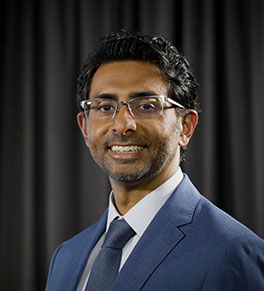
Lung Cancer Care
Discover comprehensive lung cancer services at UCI Health, where advanced treatments and personalized care empower you on your journey to recovery.
Our expert team is committed to providing you with the latest treatments and comprehensive care, ensuring you have the support you need every step of the way.
Our approach to lung cancer care
At UCI Health, our focus is on your health, offering access to the latest treatment options, innovative clinical trials and leading-edge research.
What we offer
Lung cancer screening: If you experience lung cancer signs or symptoms, our advanced screening program detects potential issues early, improving outcomes and survival rates.
Expert care: Our team of lung cancer doctors at the UCI Health Chao Family Comprehensive Cancer Center provides personalized treatment plans and precision oncology tailored to your needs.
Comprehensive services: We support you at every stage, from diagnosis to treatment and beyond.
Innovative treatments: Gain access to the latest therapies and clinical trials not available elsewhere in the region.
At UCI Health, your health is our top priority, allowing you to focus on what truly matters—your recovery and well-being.
Why choose us for lung cancer care?
UCI Health is the only university-affiliated health system in Orange County, meaning we deliver the highest standard of care through academic resources and research.
We are leaders in non-surgical interventions to destroy tumors blocking airways, including:
- Laser ablation
- Photodynamic therapy
- Cryosurgery
- Rigid bronchoscopy and airway stenting
Our cardiothoracic specialists take a minimally invasive approach, meaning that when surgery is indicated, we use thoracoscopic and robot-assisted procedures to excise lung tumors.
Our lung cancer screening program offers low-dose spiral computed tomography (LDCT) scans for smokers, former smokers and others who may be at greater risk for developing lung cancer. A national study showed 20 percent fewer lung cancer deaths among people who were screened with LDCT rather than standard chest X-rays, according to the National Cancer Institute.
We use immunotherapies to treat lung cancer by first conducting important molecular testing on both tissue and blood samples. This helps us identify any targetable mutations and determine if you could benefit from targeted therapy or immunotherapy. Because every patient is unique, your treatment plan will be tailored specifically to you, even if someone else has the same type or stage of lung cancer.
Our connection to the Chao Family Comprehensive Cancer Center means we offer a wide range of clinical trials, from early-phase studies to those for advanced stages of lung cancer, addressing all treatment options—including targeted therapies and immunotherapies. Many patients come to us for second opinions or to explore these exciting clinical trial opportunities.
Our team members thoroughly review your medical history and test results. Your case is also presented to a multispecialty tumor board that recommends a treatment plan tailored to your needs.
Looking for more options?
View all clinicians
Schedule a consultation
Call 714-456-8000 to schedule a consultation to learn about your options, or

Find a cancer clinical trial
Talk to your doctor to see if a cancer clinical trial is right for you.
Our clinicians
Featured News Stories

Thousands take the Anti-Cancer Challenge, raising over $1 million for critical research
A record number of people joined the ninth annual Anti-Cancer Challenge to ride, run and walk to support cancer research.

Renowned integrative oncology expert joins UCI Health

Pilot study tests ALS drug to treat chemo brain in cancer patients
Featured Blog Posts

Lung cancer screening is essential for early detection, treatment
UCI Health is offering a new clinical trial to expand screening to relatives of certain lung cancer patients.

A 'dream come true' realized in Irvine
Dr. Michael J. Stamos once envisioned opening a small cancer center on the UC Irvine campus. What has emerged, he says, is so much more.





